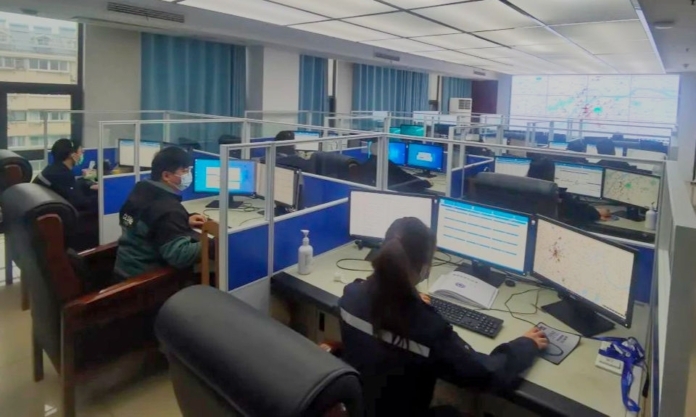
Nanjing’s medical authorities have near tripled the number of operators handling emergency calls in recent days, while going all out in urging the public not to call and waste precious resources with trivialities.
Calls to the 120 medical emergency hotline in Nanjing began the sharp growth in their numbers on 14 December. By yesterday, the number of calls stood at five times the daily average in normal times.
In response, the Nanjing First Aid Centre Communication Dispatch Division has increased the number of 120 operators on duty from 11 to 27.
However, the operators have increasing found themselves to be handling general inquiries rather than medical emergencies.
In a report published late last night by PSA Nanjing (南京发布), Yan Zhiyong with the Division revealed fully 80 percent of calls received in recent days were made by people seeking answers to non-essential questions. Ambulances were only dispatched in the remaining 20 percent of cases.
By and large, the 120 operators have been dealing with four kinds of inquiries:
- COVID-infected persons in a state of panic seeking general consultation;
- Persons wishing to visit hospital taking a 120 “shortcut” to avoid administrative delays;
- Persons diagnosed with COVID looking to not infect those with whom they live;
- Persons repeatedly dialing 120 while waiting for the ambulance to arrive.
Authorities wish to stress to the general public that such actions have seriously wasted the 120 hotline’s precious emergency resources. People seeking health consulting can instead dial 12320 to reduce the burden on 120.
Those who genuinely feel they have an emergency situation and decide to call 120 should keep calm, and briefly and clearly express to the operator the patient’s situation; age, current condition, past medical history, etc.
Should an ambulance be dispatched, there also should be clearly stated the address of the patient’s residence, while also identifying obvious nearby landmarks.
In this efficient manner, precious minutes and seconds may be saved in order that Nanjing’s healthcare system may treat the seriously ill.

